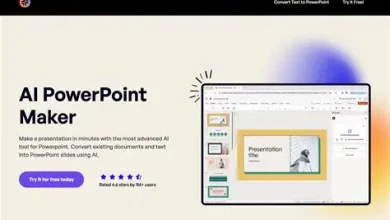
As the UK Government commits £2 billion to accelerate AI development, including £187 million specifically to upskill 7.5 million UK workers, a clear message is emerging: AI is no longer a futuristic add-on; it’s a real-time lever for national productivity and economic resilience. But to unlock its full potential, the technology must be placed where it can do the most good: in the hands of small and medium-sized businesses (SMBs). The real test lies not in how much is spent, but where the impact is felt.
Scaling AI From Big Vision to Everyday Business
SMBs are the UK’s growth engine. They make up over 99.8% of all businesses, contribute significantly to GDP, and are often the first to feel the ripple effects of market volatility. Despite their size, their role in shaping the nation’s economic future is enormous. And yet, many are still underserved when it comes to technological support.
The latest Intuit QuickBooks Small Business Insights survey paints a compelling picture. Among SMBs that have already adopted AI tools, 77% report increased productivity—a remarkable leap from 40% just three months prior. These aren’t theoretical gains. Businesses are reporting tangible benefits in areas traditionally seen as bottlenecks: admin tasks (38%), data processing (36%), bookkeeping (30%), and payroll (16%).
Why Now?
These efficiencies couldn’t come at a more critical time. With rising operational costs and cash flow constraints, many SMBs are tapping into credit facilities just to stay afloat. Recent labour market data shows SMBs with fewer than ten employees shed nearly 25,000 jobs between March and May. That’s not just a number, it’s a loss of embedded expertise and operational resilience.
Technology, and AI in particular, is becoming the lever SMBs pull to stay productive with leaner teams. From automating invoicing and payments to forecasting margins and costs in real time, AI is unlocking financial clarity and agility. For sole traders and microbusinesses, these tools are levelling the playing field by putting enterprise-grade capabilities into their hands.
Some of the most promising use cases we’re seeing today include:
- Targeted marketing based on AI-driven customer segmentation
- Faster payment cycles through intelligent reminders and follow-ups
- Real-time financial scenario modelling
- Streamlined operations that reduce manual workloads and free up time for growth
Bridging the Gap
Still, there remains a significant awareness and access gap. Many business owners are interested in AI but unsure where to begin, what tools to choose, or how to evaluate return on investment. Others worry about the time and training required to implement these technologies effectively. The result is a widening divide between AI-ready firms and those struggling to keep pace.
The government’s AI skills programme is a step in the right direction. But its true value will only be realised when those skills reach every corner of the economy, from independent shop owners to small-scale manufacturers and family-run farms. That’s where organisations like Intuit are stepping in, working closely with policymakers to ensure that support reaches the people who can turn AI from potential into progress.
Creating Ecosystems, Not Just Features
Just as important as upskilling is providing simple, accessible tools that don’t require a background in data science. AI-driven experiences are being built directly into the tools SMBs already use, helping business owners manage everything from cash flow and tax prep to customer engagement, all from a single platform. This kind of embedded AI experience is critical to making adoption not just possible, but seamless.
What’s equally important is creating ecosystems where AI tools can work together and adapt to the business journey. For example, a sole trader might begin using AI for simple expense categorisation, and over time evolve into using it for dynamic forecasting and scenario planning. Building modular tools that scale with the user’s needs ensures SMBs aren’t boxed into tech that quickly outgrows their operations. Flexibility and interoperability must be core to AI product design for this segment.
An Inclusive Future
To truly lead in the global AI race, the UK must prioritise digital accessibility and upskilling where it counts most. SMBs don’t just need tools—they need training, infrastructure and support that recognises their ambition and unlocks their capacity.
The AI revolution can’t be top-down. It has to be inclusive, grassroots, and tailored to real business needs. With the right combination of investment and inclusion, SMBs won’t just keep pace with the AI revolution—they’ll drive it.
This is not a challenge the government or any one company can solve alone. The most meaningful progress will come through cross-sector collaboration, between tech providers, financial institutions, regulators, educators, and the businesses themselves. Companies must play an active role in these partnerships, offering not just tools, but insight, training, and ongoing support that reflect the realities of running a small business in the UK today.





